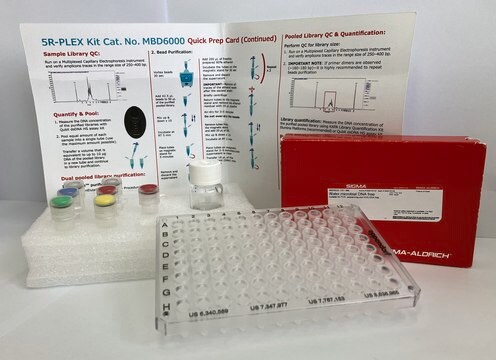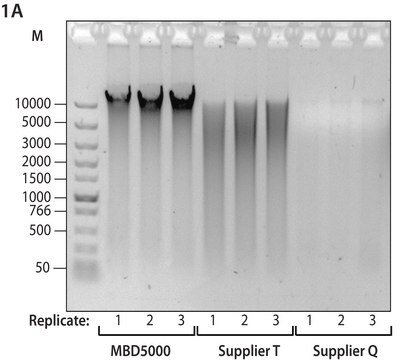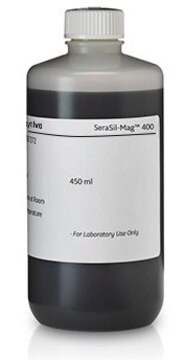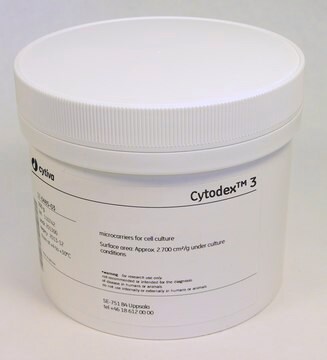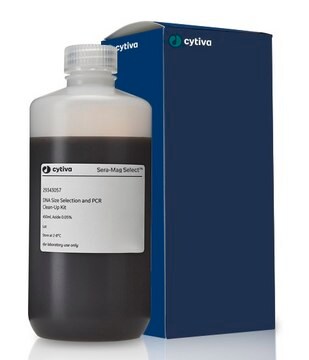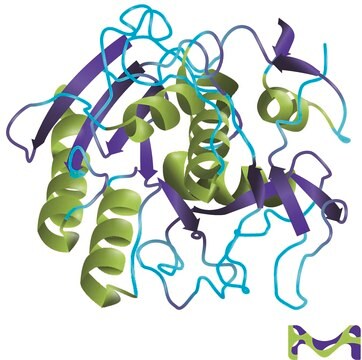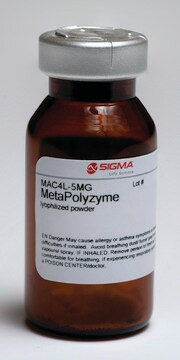MBD6009
5R-PLEX beads
for PCR purification
Synonym(e):
5R-PLEX SPRI beads
Anmeldenzur Ansicht organisationsspezifischer und vertraglich vereinbarter Preise
Alle Fotos(1)
About This Item
UNSPSC-Code:
12352200
NACRES:
NA.55
Empfohlene Produkte
Allgemeine Beschreibung
Solid Phase Reversible Immobilization (SPRI) beads are magnetic beads that can be utilized for DNA purification and size selection. The 5R-PLEX beads are SPRI beads designed to easily separate the desired PCR amplicon from nucleotides, adapters, primers, and primer dimers by efficient purification and size selection. The magnetic beads are provided in a ready to use suspension that enables fast and efficient application even in high throughput applications with automated liquid handling. The beads are formulated with NaCl and high purity PEG as the crowding agent.
Anwendung
- NGS library preparation, including 16S and 18S
- Approved to use in ultrasensitive 5R-Plex (SMURF) library preparation(2,3,4) for degraded samples
- PCR reaction clean up
- Amplicon size selection
- DNA purification and manipulation (replacing elution buffer, concentrating the sample)
Leistungsmerkmale und Vorteile
- Ready to use
- Compatible with automated liquid handling
- Easy size selection by changing the volumetric ratio of beads to samples
Lagerklassenschlüssel
10 - Combustible liquids
WGK
WGK 1
Analysenzertifikate (COA)
Suchen Sie nach Analysenzertifikate (COA), indem Sie die Lot-/Chargennummer des Produkts eingeben. Lot- und Chargennummern sind auf dem Produktetikett hinter den Wörtern ‘Lot’ oder ‘Batch’ (Lot oder Charge) zu finden.
Besitzen Sie dieses Produkt bereits?
In der Dokumentenbibliothek finden Sie die Dokumentation zu den Produkten, die Sie kürzlich erworben haben.
Lishay Parhi et al.
Nature communications, 11(1), 3259-3259 (2020-06-28)
Fusobacterium nucleatum is an oral anaerobe recently found to be prevalent in human colorectal cancer (CRC) where it is associated with poor treatment outcome. In mice, hematogenous F. nucleatum can colonize CRC tissue using its lectin Fap2, which attaches to
Unser Team von Wissenschaftlern verfügt über Erfahrung in allen Forschungsbereichen einschließlich Life Science, Materialwissenschaften, chemischer Synthese, Chromatographie, Analytik und vielen mehr..
Setzen Sie sich mit dem technischen Dienst in Verbindung.